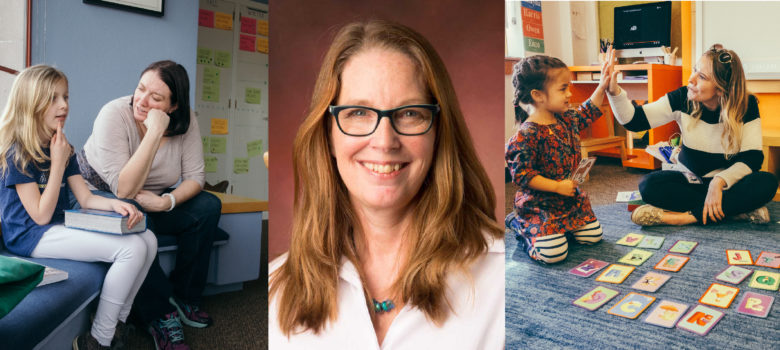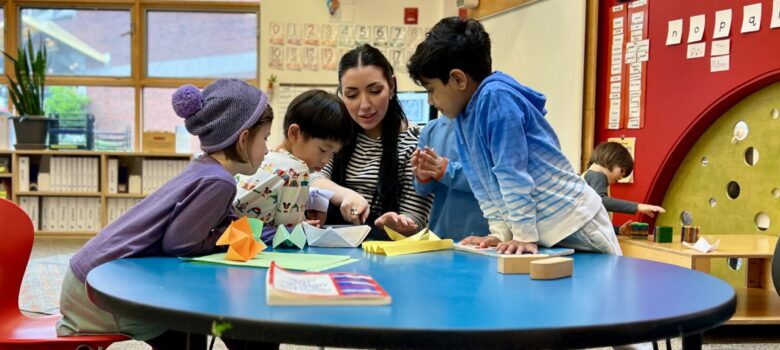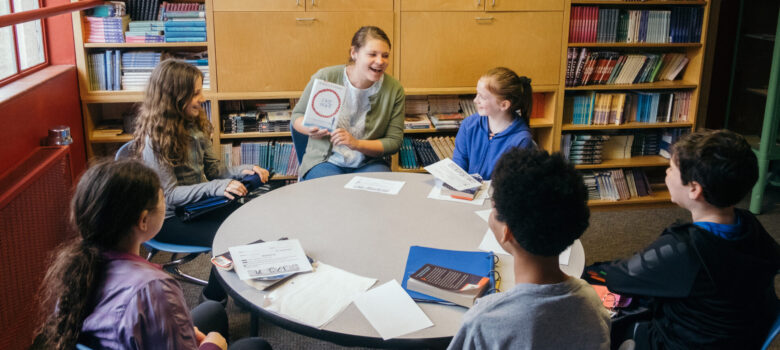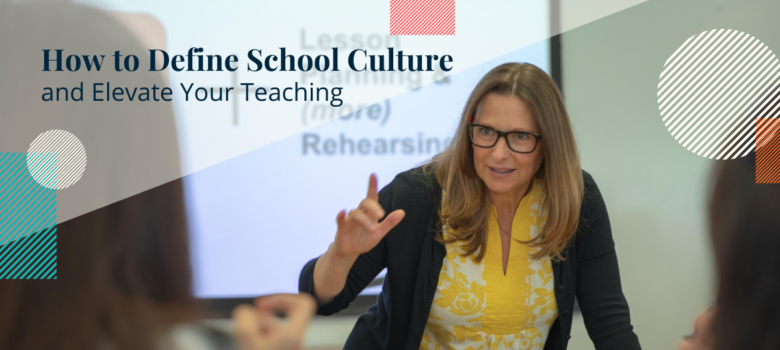By David Garrick, Graduate School Dean at UCDS Institute
Making the decision to attend graduate school is an exciting prospect but it comes with some extra considerations. Continuing education requires a commitment of time, energy and resources. There are a number of variables to consider and the decision you make can have a lasting impact on your career. Choosing a graduate program that has a lasting value offers the opportunity to become immersed in new practices to deepen the passion for learning.
To help students through the decision-making process, I’ve consulted a panel of educators who have each intentionally selected UCDS to grow their teaching and leadership capacities.
Betsy Watkins, Director of Accreditation at Northwest Association of Independent Schools (NWAIS)
Meg Roosa, Principal at Ascend International School
Lily Burgess, Teacher at UCDS
Q: When seeking a place to grow professionally, what considerations drove your choices?
Garrick: Many Master’s Degree programs offer coursework that is oriented toward giving you information. Mentorship and reflection, a chance to practice what you are learning about, these are elements that can have a lasting impact on your career and help you identify your true professional trajectory.
Watkins: After completing my student teaching requirements at a public school in Iowa, I moved back to my home state of California and began working as an elementary school teacher. To be honest, I wasn’t the best math teacher—I knew I needed to do whatever it took to become an excellent math teacher.
I was early in my career and knew that I needed hands-on mentorship. UCDS provided an opportunity to learn from others and become the fantastic math teacher I wanted to be.
Q: Do students need an undergraduate degree in education to enter an education-focused graduate program?
Garrick: While teacher certification requirements vary by state, there’s often flexibility between undergraduate degrees and graduate program eligibility. For example, UCDS’ Master of Education program only requires that a student’s undergraduate degree was earned at an accredited university. We actively seek students with a wide variety of educational backgrounds.
Burgess: I attended Scripps College in California. Though I had a lot of interest in education, I ended up double-majoring in studio art and psychology. My passion for teaching didn’t fade, and I ended up participating in a volunteer program where I tutored students in reading. That’s when I decided to participate in UCDS’ resident teacher program.
Many of the resident teachers I’ve talked to are interested in education but don’t have it as their undergraduate degree. That’s what makes teacher residencies and graduate programs so important—it gives those who are interested in education an opportunity to pursue a career in it.
Q: What are some steps to take prior to selecting a professional development program?
Burgess: I consulted my peers before deciding on UCDS’ resident teacher program. My undergrad experience was very round-table—reflection and critical thinking were integral to the learning process. I wanted to find those same environmental factors in a graduate program, where students are learning and growing together. Luckily, I found that intellectual stimulus at UCDS.
Watkins: I read through websites, researching the philosophy and background of different programs. My goal was to find a program with the features that are important to me, such as academic rigor, a true passion for teaching and learning from faculty.
Roosa: Schools need more educators who know the ‘why’s’ instead of just the ‘what’s’. If you’re looking for a way to hone your skillset while learning how to become an innovator, an education-focused grad program is for you.
Q: How important is the size, location and culture of a graduate school?
A: Watkins: Culture is everything. I wholly believe that a graduate school should be welcoming and focused on nurturing adults as learners—this unfortunately gets ignored in many institutions. New generations are comfortable taking risks and making mistakes as part of the learning process. An effective graduate program will reflect this.
Burgess: In my experience, a smaller program allowed for more engagement and support. As a student and current teacher at UCDS, I feel valued and part of a community. I think that’s really important.
Roosa: When I left UCDS to start a leadership position at Ascend International in Mumbai, school culture was top-of-mind. My education experience exposed me to the power of culture, and I was able to translate that at a new school, in a different country. Whether you choose to teach, serve in an administrative role or any other position in education, school culture is incredibly important. Programs with a strong culture that feel welcoming and evoke a sense of belonging for students are vital.
Q: What are some positive indicators of an effective Master of Education graduate program?
A: Roosa: Any Master of Education program that equips students with a usable framework is a solid choice. When educators have a foundation to work off of, it becomes easier to innovate within a new institution.
Burgess: Positive indicators come in many forms. It may be the energy you feel, or it could be the enthusiasm you have for what you’re working on. Does the program feel like a fit for you? Everybody learns differently, and it’s important that the program you’re enrolled in caters to your style.
Q: What career outcomes should students expect after completing a professional development program?
A: Watkins: After finishing the resident teacher program, I worked as a K-5 teacher at UCDS, at a nonprofit with students who had varied developmental disabilities, and was one of the founding principals at Ascend International School in Mumbai, India. I currently work as the Director of Accreditation at NWAIS. The UCDS Resident Program gave me the knowledge and skills I needed to grow as an educator—that’s what students should expect to gain from their programs.
Roosa: The instructional practices and frameworks taught during a graduate program lead to open-ended opportunities for students. When you have knowledge and the ability to execute it, you can choose a role that aligns with your passions.
To learn more about the UCDS Master of Education graduate program, please visit ucds.org/institute/graduate-program/.





